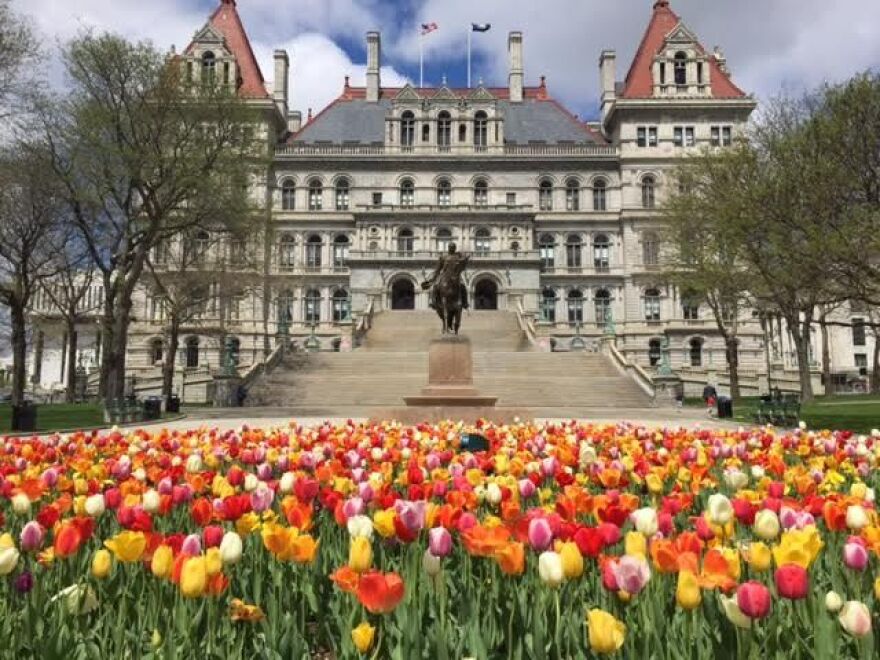Criminal justice advocates in New York state say they hope to build on recent victories, such as the legalization of adult recreational use of marijuana, to gain more reforms for members of Black and brown communities who are incarcerated at a higher rate than white New Yorkers.
Advocates and progressive-leaning Democratic lawmakers hope that in the legislative session’s remaining weeks, measures that reform the state’s parole system will be passed.
One of the bills, known as Elder Parole, would require the state’s parole board to take into account the health of a prisoner aged 55 or older who has already served a significant amount of their sentence. Many of the 10,000 or so inmates in this category suffer from chronic diseases, and some have died during the COVID-19 pandemic.
Nawanna Tucker is with the group Release Aging People in Prison, known as RAPP. Her husband has been incarcerated for 33 years. She said at age 55, he deserves a chance to be home with his family.
“My husband has two children of his own,” Tucker said. “Two grandchildren he has never met.”
Tucker’s husband was convicted of second-degree murder, robbery and weapons possession. He pleaded not guilty and is trying to overturn his case in court.
Tucker and others said the state’s criminal justice system should offer a chance of redemption for those who have served their time for their crimes.
“When the parole board in the state of New York does not grant the paroles that so many deserve, and you allow them to die in prisons, you have now become a murderer yourself,” Tucker said. “This has to stop.”
Assemblymember Carmen De La Rosa sponsors the bill. She said she represents a community adversely affected by the federal war on drugs and the state’s former harsh Rockefeller Drug laws. She said many of the people that she grew up with are now serving long prison terms because of those laws.
“When they get before the parole board, they are not judged based on any transformation or any system of restoration,” De La Rosa said. “They are judged, basically, on one point in time that they can never change.”
Another bill would require parole board members to take into consideration other factors besides the original crime, including how a person may have changed for the better while in prison.
Sen. Brad Hoylman, who sponsors the Elder Parole bill in his house, urged advocates to talk to other lawmakers who may still be on the fence in the final weeks before the Legislature adjourns for the summer.
“I’m so focused on doing that before the end of June,” Hoylman said.
The lawmakers and advocates are also calling on Gov. Andrew Cuomo to change the makeup of the state’s parole board.
Cuomo appoints the 19 Parole Board members, and there are currently three vacancies. The advocates want the governor to fill those vacancies with commissioners who come from communities adversely affected by high rates of imprisonment. They want him to consider appointing social workers, nurses, and those who work in services that help inmates re-enter society.



